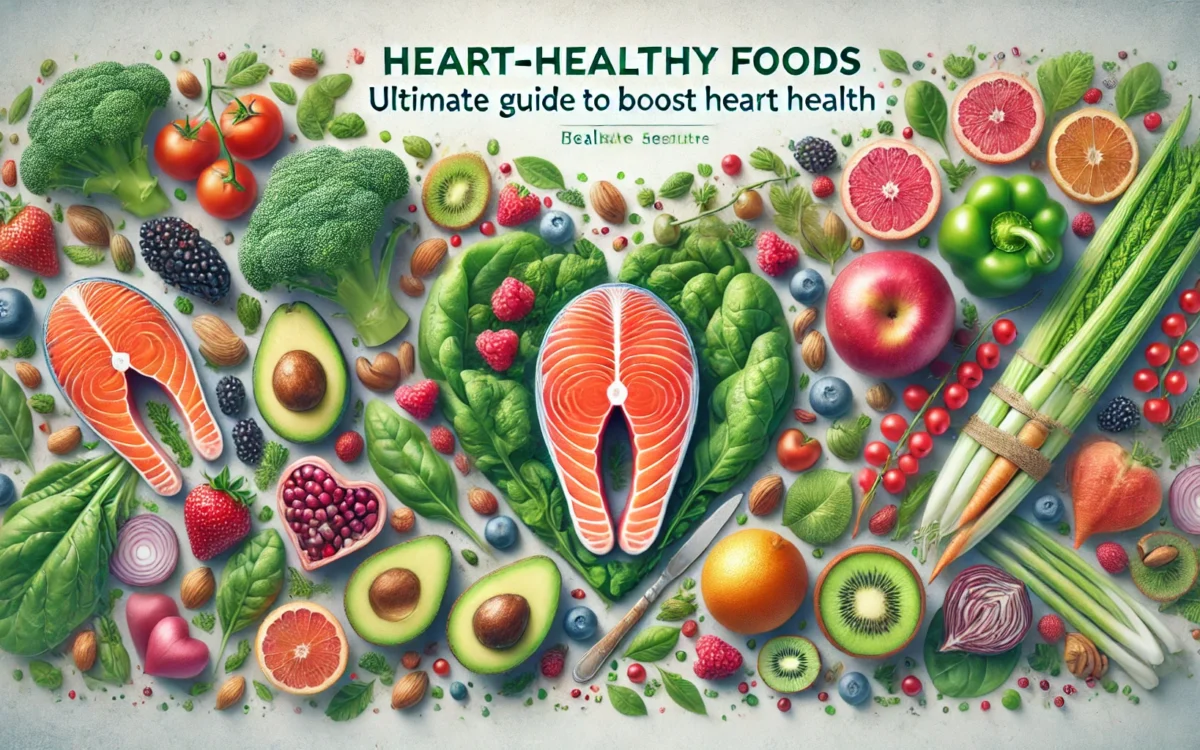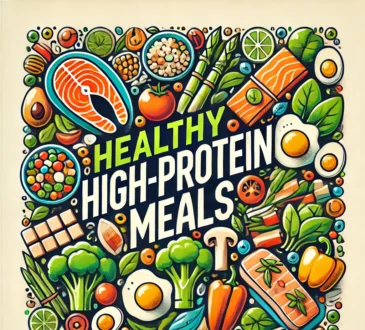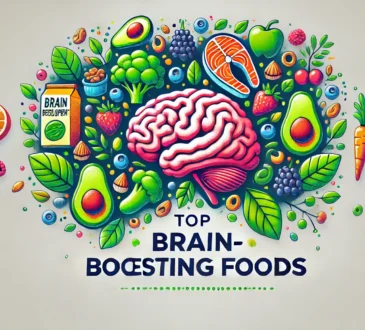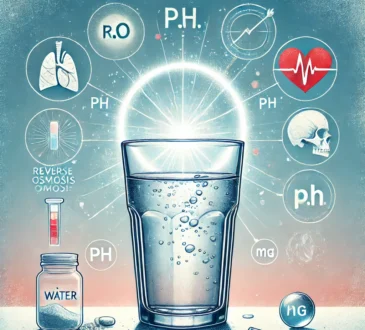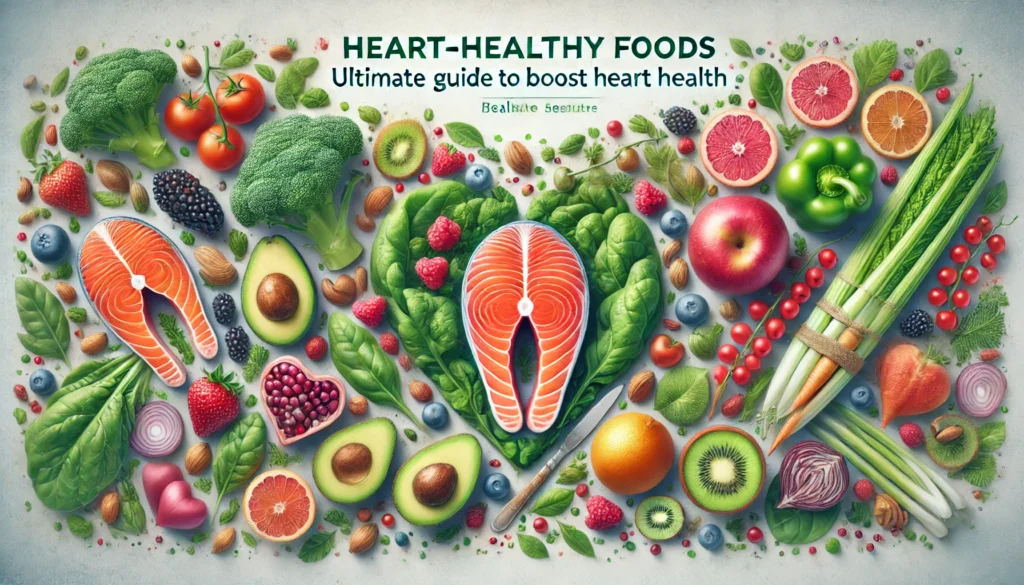
Introduction
The heart is one of the most vital organs in the human body, tirelessly pumping blood and delivering essential nutrients and oxygen to every cell. Maintaining heart health is crucial for overall well-being, and one of the best ways to support a healthy cardiovascular system is through a balanced and nutritious diet. In this comprehensive guide, we will explore the best heart-healthy foods, their nutritional benefits, and how to incorporate them into your daily meals.
The Importance of a Heart-Healthy foods
A heart-healthy diet helps lower the risk of heart disease, hypertension, high cholesterol, and other cardiovascular issues. Consuming the right foods can:
- Reduce inflammation
- Lower LDL (bad) cholesterol levels
- Raise HDL (good) cholesterol levels
- Control blood pressure
- Maintain a healthy weight
Key Nutrients for Heart Health
Certain nutrients play a crucial role in promoting cardiovascular health:
- Fiber: Helps reduce LDL cholesterol and improve blood sugar control.
- Omega-3 Fatty Acids: Reduce inflammation and lower the risk of arrhythmias.
- Antioxidants: Protect cells from oxidative stress.
- Potassium: Helps regulate blood pressure.
- Magnesium: Supports healthy heart rhythms.
- Healthy Fats: Monounsaturated and polyunsaturated fats help maintain healthy cholesterol levels.
Top Heart-Healthy Foods
1. Fatty Fish
Fatty fish like salmon, mackerel, sardines, and trout are rich in omega-3 fatty acids, which reduce inflammation and lower triglyceride levels.
30+ Healthy High-Protein Meal Ideas to Boost Your Diet
Nutritional Benefits:
- High in omega-3 fatty acids
- Excellent source of lean protein
How to Enjoy:
- Grill or bake salmon with herbs and lemon.
- Add sardines to salads or whole-grain crackers.
- Make a hearty fish stew with mackerel.
2. Nuts and Seeds
Almonds, walnuts, flaxseeds, and chia seeds are packed with healthy fats, fiber, and antioxidants.
Nutritional Benefits:
- High in monounsaturated and polyunsaturated fats
- Rich in fiber and plant-based protein
How to Enjoy:
- Sprinkle chia seeds on yogurt or smoothies.
- Snack on a handful of mixed nuts.
- Add flaxseed to oatmeal or baked goods.
3. Whole Grains
Whole grains like oats, quinoa, brown rice, and whole wheat provide essential fiber and nutrients.
Nutritional Benefits:
- High in dietary fiber
- Rich in vitamins and minerals
How to Enjoy:
- Start your day with oatmeal topped with fresh berries.
- Swap white rice for quinoa in stir-fries.
- Choose whole-grain bread for sandwiches.
4. Leafy Greens
Spinach, kale, and Swiss chard are loaded with vitamins, minerals, and antioxidants.
Nutritional Benefits:
- High in vitamin K, which helps protect arteries
- Rich in dietary nitrates that improve blood pressure
How to Enjoy:
- Add spinach to smoothies.
- Saute kale with garlic and olive oil.
- Make a hearty salad with Swiss chard.
5. Berries
Blueberries, strawberries, raspberries, and blackberries are antioxidant powerhouses.
Nutritional Benefits:
- Rich in anthocyanins that reduce inflammation
- High in fiber and vitamin C
How to Enjoy:
- Top oatmeal or yogurt with mixed berries.
- Blend into smoothies.
- Enjoy as a fresh snack.
6. Avocados
Avocados are a great source of heart-healthy monounsaturated fats.
Nutritional Benefits:
- High in potassium and healthy fats
- Rich in fiber
How to Enjoy:
- Spread avocado on whole-grain toast.
- Add slices to salads and sandwiches.
- Make guacamole with lime and cilantro.
7. Legumes
Beans, lentils, and chickpeas are excellent sources of plant-based protein and fiber.
Effective Strategies to Control the Greenhouse Effect: Mitigating Climate Change and its Impact
Nutritional Benefits:
- High in fiber and protein
- Low in saturated fat
How to Enjoy:
- Add black beans to tacos.
- Make a hearty lentil soup.
- Toss chickpeas into salads.
8. Olive Oil
Extra virgin olive oil is a staple of the Mediterranean diet and a source of healthy fats.
Nutritional Benefits:
- Rich in monounsaturated fats
- Contains antioxidants
How to Enjoy:
- Drizzle over salads.
- Use as a cooking oil for sautéing.
- Dip whole-grain bread in olive oil with herbs.
9. Dark Chocolate
Dark chocolate with at least 70% cocoa contains flavonoids that promote heart health.
Nutritional Benefits:
- High in antioxidants
- May lower blood pressure
How to Enjoy:
- Enjoy a small piece as a treat.
- Add cocoa powder to smoothies.
- Mix into healthy granola.
10. Tomatoes
Tomatoes are rich in lycopene, an antioxidant linked to reduced heart disease risk.
Nutritional Benefits:
- High in vitamins C and K
- Contains potassium and lycopene
How to Enjoy:
- Add sliced tomatoes to sandwiches.
- Make a fresh tomato salad.
- Use in homemade pasta sauces.
11. Garlic
Garlic has been used for centuries for its medicinal properties, including heart health benefits.
Nutritional Benefits:
- Contains allicin, which may help lower blood pressure
- Anti-inflammatory properties
How to Enjoy:
- Mince and add to sautéed vegetables.
- Roast whole cloves for a mellow flavor.
- Incorporate into salad dressings.
12. Green Tea
Green tea is rich in polyphenols and catechins, which have antioxidant properties.
Nutritional Benefits:
- May improve blood vessel function
- Contains heart-protective compounds
How to Enjoy:
- Brew a warm cup in the morning.
- Enjoy iced green tea with lemon.
13. Citrus Fruits
Oranges, grapefruits, and lemons are packed with vitamin C and other beneficial compounds.
Nutritional Benefits:
- High in vitamin C
- Contains flavonoids that may reduce blood pressure
How to Enjoy:
- Snack on fresh orange slices.
- Add lemon juice to water.
- Make a citrus vinaigrette for salads.
14. Sweet Potatoes
Sweet potatoes are a nutrient-dense source of complex carbohydrates.
Nutritional Benefits:
- High in potassium and fiber
- Rich in beta-carotene
How to Enjoy:
- Roast with olive oil and herbs.
- Mash as a side dish.
- Add to grain bowls.
15. Yogurt
Yogurt, especially Greek yogurt, is a good source of probiotics and calcium.
Nutritional Benefits:
- High in protein and probiotics
- Contains heart-healthy calcium
How to Enjoy:
- Top with nuts and berries.
- Use as a base for smoothies.
- Make a creamy salad dressing.
Practical Tips for a Heart-Healthy foods
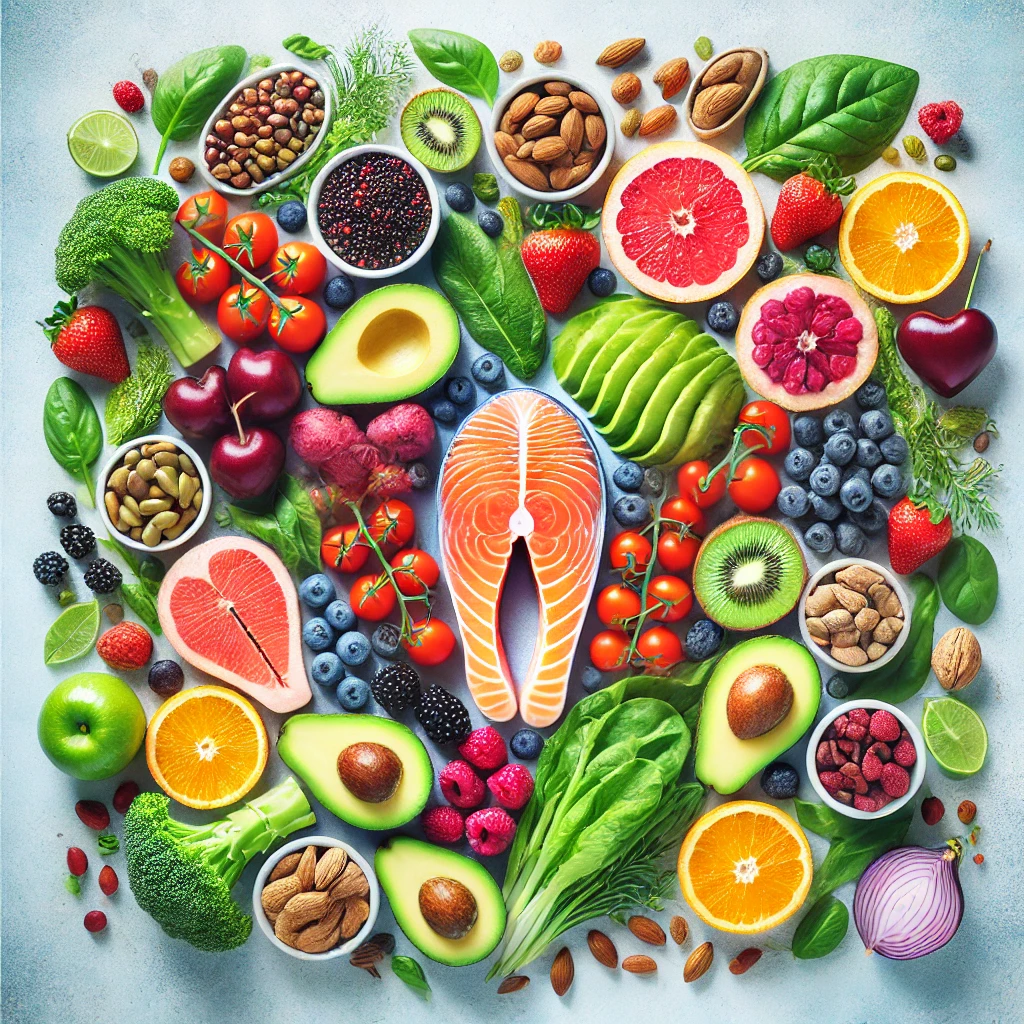
1. Focus on Whole Foods
Choose minimally processed foods over packaged and refined options.
2. Limit Added Sugars
Excess sugar can contribute to weight gain and inflammation.
3. Watch Sodium Intake
High sodium levels can elevate blood pressure. Opt for fresh ingredients and avoid processed snacks.
4. Incorporate Healthy Fats
Replace saturated and trans fats with monounsaturated and polyunsaturated fats.
5. Plan Balanced Meals
Aim for a mix of lean protein, whole grains, healthy fats, and colorful vegetables.
6. Stay Hydrated
Drink plenty of water and limit sugary beverages.
7. Practice Portion Control
Mindful eating can help maintain a healthy weight.
8. Stay Active
A balanced diet combined with regular exercise offers the best protection for heart health.
Conclusion
Maintaining a heart-healthy foods doesn’t have to be complicated. By incorporating a variety of nutrient-rich foods and making mindful choices, you can nurture your heart and improve your overall well-being. Start by making small changes, such as adding more leafy greens to your meals or swapping refined grains for whole grains. Over time, these choices will become second nature, supporting a healthier and happier heart.

